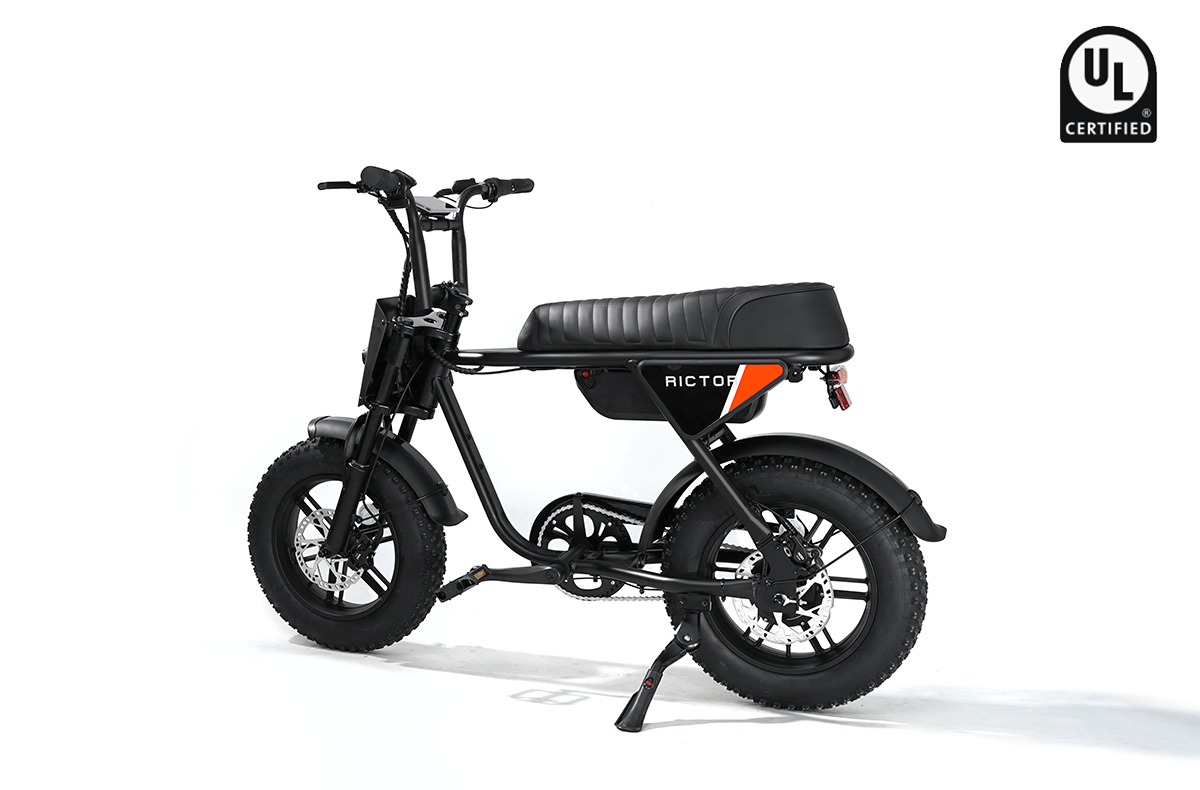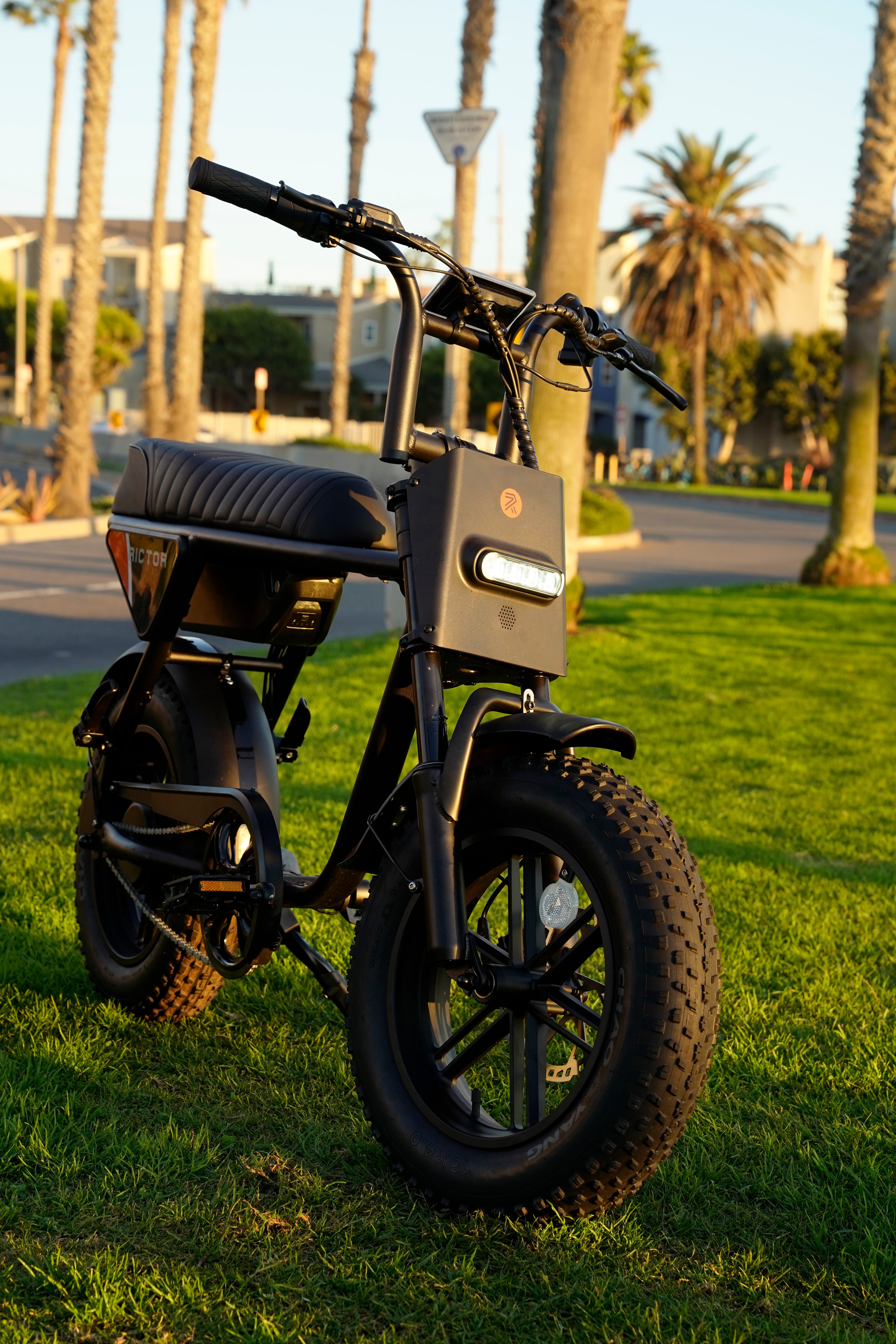
What different between 2in and 1 1/4 in ebike rack mount?
Many vehicle owners assume that the difference in size is purely a matter of preference or minor detail, but the choice can significantly impact towing capacity, vehicle compatibility, and performance.
In this guide, we’ll break down the critical aspects of both hitch sizes, focusing on their strength, versatility, and applications to help you make the best choice for your towing needs.
What’s the Real Difference Between 2in and 1 1/4 In E-Bike Rack Mount
At first glance, the 2-inch hitch and 1 1/4-inch hitch appear similar. Both are designed to attach accessories, such as bike racks, cargo carriers, or trailers, to your vehicle.
However, the 2-inch hitch is the industry standard for most heavy-duty towing applications, offering a greater towing capacity compared to the smaller 1 1/4-inch hitch.
The 2-inch Hitch
A 2-inch hitch is the go to option for anyone who needs to carry heavy loads. Whether you're towing boats, campers, or larger trailers, the 2-inch receiver is the stronger and more versatile choice.
It offers a higher weight rating, typically ranging from 3,500 to 10,000 pounds, depending on the vehicle and hitch class. The larger size provides more contact area with the hitch receiver, resulting in a more secure fit for heavy duty applications.
Beyond towing, the 2-inch hitch also supports a wider range of accessories, including multi-bike racks, large cargo boxes, and high capacity hitch mounted platforms. This increased compatibility is why the 2-inch hitch is so commonly used in the RV, boating, and outdoor recreation industries.
Advantages of the 2 inch Hitch:
-
Higher towing capacity, suitable for larger loads.
-
Better compatibility with a variety of towing accessories.
-
Stronger construction ensures durability and reliability.
-
Widely available, making it easy to find replacement parts and accessories.
The 1 1/4-inch Hitch
On the other hand, the 1 1/4-inch hitch is often found on compact cars, crossovers, and smaller SUVs. While it’s not as robust as the 2-inch hitch, it can still be highly effective for lighter towing needs.
Typical applications for the 1 1/4-inch hitch include light trailers, bike racks, and small cargo carriers. The towing capacity of these hitches typically maxes out around 2,000 to 3,500 pounds, which is more than sufficient for standard bike haulers or small camping gear.
While it doesn’t offer the same level of strength or versatility as the 2-inch hitch, the 1 1/4-inch hitch excels in situations where towing heavier loads is not required. It’s also a smaller, more affordable option for those who only need to haul lighter items or use hitch-mounted accessories.
Advantages of the 1 1/4-inch Hitch:
-
Ideal for light towing and compact vehicles.
-
Lower cost compared to larger hitches.
-
Smaller size provides a more streamlined look and easier installation on vehicles with less towing capacity.
-
Often sufficient for bike racks, cargo carriers, and small trailers.
SEE ALSO Why Are Men's and Women's Bikes Structurally Different?
Towing Capacity
One of the most significant considerations when choosing between a 2-inch hitch and a 1 1/4-inch hitch is the towing capacity.
A 2-inch hitch is designed to handle much heavier loads. If you plan on towing large trailers or carrying heavier cargo, the 2-inch hitch is clearly the better choice. Conversely, if your needs are limited to smaller trailers, bike racks, or lighter accessories, the 1 1/4-inch hitch may be sufficient.
It's essential to match the hitch size to the intended load to avoid potential damage to both the vehicle and the hitch system. Overloading a 1 1/4-inch hitch can lead to excessive wear, instability, and even safety hazards.
Vehicle Compatibility
The size of the hitch you need will depend largely on the type of vehicle you own. Larger trucks, SUVs, and full size cars are often equipped with 2-inch hitches, as they are designed to handle heavier towing tasks. Smaller cars and compact SUVs typically feature 1 1/4-inch hitches, as they are designed for light towing and more efficient fuel economy.
When deciding on a hitch size, check your vehicle’s towing specifications and weight ratings. For example, sedans and smaller crossovers may not have the powertrain or frame strength to handle the extra weight associated with a 2-inch hitch. In contrast, a full-size pickup truck may not even consider a 1 1/4-inch hitch as a viable option for heavy-duty tasks.
Which Hitch Size Is Best for My Electric Bike
For me, I have the Rictor K1 electric commuter bike (weighing 95 lbs), and I found that the best choice was the 2-inch hitch. It just felt like the right option to handle the weight and keep everything secure during transport.
Stronger Load Capacity
A 2-inch hitch offers a higher weight capacity, typically around 350 pounds or more, which is ideal for carrying heavier loads like electric bikes. The 1 1/4-inch hitch, while sufficient for lighter bikes, may not provide the same level of stability when carrying an electric bike with additional weight.
Compatibility with Bike Racks
Many bike racks designed for electric bikes are built to be compatible with 2-inch hitches due to the increased security and stability they provide. If you plan on using a rack specifically designed for electric bikes, the 2-inch receiver will likely be the best fit.
Improved Towing Stability
A 2-inch hitch provides better handling on the road, which is crucial when towing something heavy, like an electric bike. The extra support from a larger receiver ensures your bike stays securely in place, reducing the chance of sway or accidents.
Conclusion
When deciding between a 2-inch hitch and a 1 1/4-inch hitch, it’s important to think about your towing needs and the specs of your vehicle. For heavy-duty towing and bigger loads, the 2-inch hitch is definitely the better choice. But if you're just hauling lighter stuff or need something more compact, the 1 1/4-inch hitch gives you a solid balance of performance and value.
FAQs
Can I use a 1 1/4-inch hitch on a truck that’s designed for a 2-inch hitch?
While it’s possible to use a 1 1/4-inch hitch on a vehicle with a 2-inch hitch receiver, it’s generally not recommended, as the smaller hitch will not offer the same towing capacity or versatility as a 2-inch hitch.
How do I know which hitch size is right for my vehicle?
Check your vehicle’s owner's manual for its towing capacity and recommended hitch size. Additionally, the hitch receiver size is typically marked on the vehicle frame or bumper.
Can I install a 2-inch hitch on a car with a 1 1/4-inch receiver?
In most cases, hitch adapters can be used to convert a 1 1/4-inch receiver to a 2-inch receiver. However, it’s important to remember that this may affect towing capacity and stability, so it’s essential to check the weight limits.





